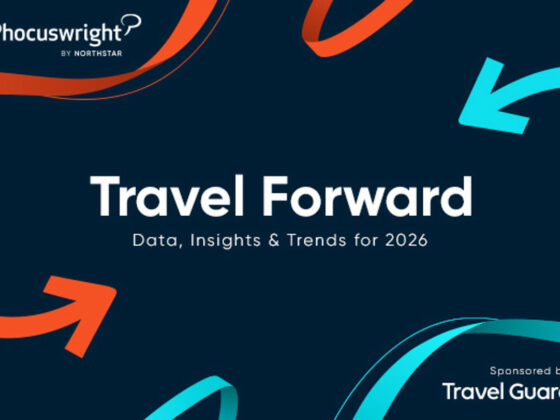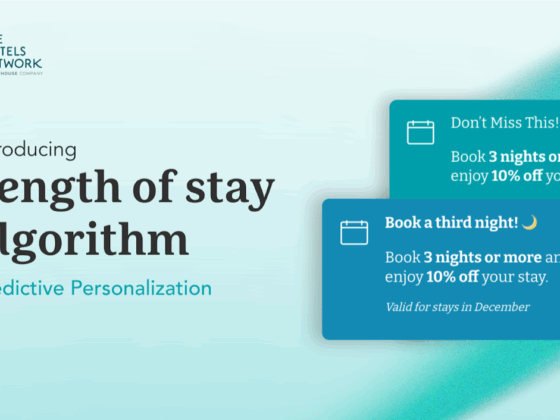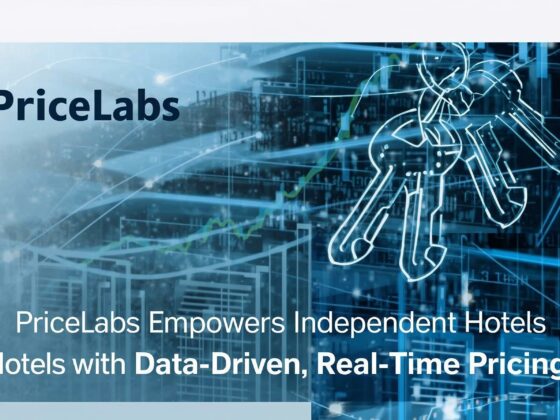In an age of automation, the human touch remains the most valuable asset in hospitality. This challenge is especially acute in volatile markets like Argentina, where adaptability is paramount for success. Against this backdrop, HTL Hoteles offers a masterclass in balancing technology and human touch in hospitality, using technology not to replace service, but to empower it. This has created a uniquely resilient operational model. Shiji Insights spoke with CEO Javier Ferrarotti to gain insight into his vision. He reveals how a focus on guest experience, powered by smart data and an empowered team, has become their core commercial strategy, providing invaluable lessons on building a future-proof hospitality business.
Javier’s Takeaways
Use an integrated tech suite to centralise guest data. This enables your team to anticipate guest needs proactively.
Define your strategic vision before selecting any technology. Ensure every tool you adopt directly supports that specific goal.
Use technology as an internal tool to empower your staff, not as a replacement for genuine human interaction.
In volatile markets, measure ROI with real-time guest experience ratios, not rigid budgets, for rapid strategic adjustments.
Treat online reputation as your core commercial strategy. Directly link improved guest review scores to your rate-setting power.
Vision and strategy
The guest experience is at the heart of our operation. At HTL, we realised that having a good mattress, fast Wi-Fi, or a smile at reception isn’t enough. What matters is identifying each guest’s deeper needs and offering a memorable, personalised experience. That’s why we created the HTL Experience Centre, not as a new department, but as a paradigm shift: a transversal approach that runs through the entire operation. Technology supports this approach. It helps us be more efficient, organised, and quick, but it doesn’t replace personalised service, which remains irreplaceable for us. AI and tech tools are a means, not an end.
Market context
Argentina is a country where economic uncertainty poses significant challenges to traditional planning. That’s why at HTL, we developed a management system based on ratios, not budgets, allowing us to quickly adapt to environmental changes. We also face increasingly demanding guests who value experiences over standard services. In this context, technology and AI are allies in personalisation, anticipation, and being present without intruding. But the real differentiator remains human quality. We’re betting on more empathetic hospitality, where the experience is the guest’s main decision driver.


Reputation as a driver
How central is online reputation management to HTL’s overall business strategy, beyond the satisfaction scores collected via your Reputation Management System, in terms of tangible commercial results?
Guest experience defines our rates, our differentiator, and our revenue. That’s why online reputation isn’t just an indicator, it’s the core of our commercial strategy. We don’t work with fixed budgets due to the country’s economic volatility. Instead, we use weekly, biweekly, and monthly ratios. These help us measure each sector and identify needed adjustments. If our Booking.com score goes from 8.3 to 8.6, we know that it has a real return. The entire team is aligned with these goals, and the Experience Centre is responsible for communicating and maintaining this standard across the chain.
“Guest experience defines our rates, our differentiator, and our revenue.” Javier Ferrarotti
Leveraging guest feedback
In what ways do you apply guest feedback to make strategic adjustments or operational improvements? Could you provide an example?
Guest feedback feeds into a system we’re integrating with our CRM. We want to ensure that when a guest contacts us, we already know not just which room they stayed in, but what needs or issues they had. For example, if we know they had a bad experience with the mattress during a previous stay, we can say: “This time, we’ve prepared a special mattress just for you.” That kind of personalised anticipation is what we’re aiming for, and integrating ReviewPro with the CRM is key to achieving it.
Integration advantage
What benefits have you observed from using an integrated suite rather than standalone tools for surveys, messaging, and reputation management?
An integrated suite allows us to centralise information, standardise responses, and improve efficiency. The entire team can access the necessary data, regardless of how or where the guest made their booking. This enables quick decision-making, weekly course corrections, and collaborative efforts to uphold quality standards. It also simplifies follow-ups and the implementation of specific improvements, without relying on multiple disconnected platforms.
Communication transformation
How has your team’s interaction with guests changed before, during, and after their stay?
We now use automated responses only as an initial filter to quickly route inquiries to the right department. But real service is always delivered by a human operator. For us, AI doesn’t replace people; it supports our teams, not the end guest. Our staff use a query agent with all standard procedures to provide personalised, consistent answers, always with a human touch. That warmth and closeness is the difference our guests feel and value.
Exploring AI
What specific challenges or opportunities are driving this exploration? What AI applications are most exciting for HTL Hoteles?
AI represents a path we’re just beginning, and we’re taking it seriously. We’ve already hired a specialised firm and assembled an internal team to work with them. The applications we’re most excited about are those that enhance our staff’s work, like the internal support agent that serves as a fast, reliable source of information. We’re also evaluating tools for sentiment analysis, automation, and personalisation, without losing sight of the fact that the human experience is irreplaceable.
Balancing AI and authenticity
Could you describe your approach to balancing the efficiencies of AI with the need for authentic, personal guest service?
Our decision was clear: we will not replace personalised service. We don’t use AI to speak directly with guests. Instead, our goal is to empower our staff by giving them immediate access to the procedures and knowledge they need. This allows them to respond efficiently, but with the warmth, empathy, and human judgment that technology can only support, never replace. Charisma is still beyond AI’s reach, and we don’t want to lose it.
“Charisma is still beyond AI’s reach, and we don’t want to lose it.” Javier Ferrarotti
Data-driven personalisation
How does HTL envision using data and AI to offer personalised experiences without being intrusive?
We’re working on integrating our systems to deliver true personalisation without crossing boundaries. We believe in recognising the guest, anticipating their needs, and being present in their search journey without overwhelming them. That’s why we use strategies like social media tracking, banners, and gentle remarketing campaigns, avoiding more direct and intrusive channels like WhatsApp. Our goal is to be remembered fondly, not resented.
Measuring tech ROI
Could you describe your methodology for calculating the ROI of your tech ecosystem and the impacts you’ve seen on operations or revenue?
We measure ROI through weekly guest experience ratios, not traditional budgets. These indicators show how each area is performing and whether adjustments are needed. We know that a higher score on platforms like Booking directly impacts our rates and guest choice. Experience justifies the price and determines occupancy. That’s why the technology we use has a clear and consistent impact.
Future tech integrations
Looking ahead 3–5 years, what role will integrated tech platforms play at HTL?
We believe AI will see explosive growth in the coming years. Some integrations are still expensive or unviable due to volume, but they’ll soon be accessible. That’s why we’ve already brought in a specialist and are working to integrate all our systems, CRM, reputation management, and internal management, into one central platform. Our goal is for all of HTL to be connected through a single tool, giving our teams everything they need to manage resources, bookings, and experiences from any touchpoint.
Advice to peers
Based on your experience, what are the key lessons for other hotel leaders in similar markets before they make this type of investment?
The key is not to chase novelty or adopt technology just because it’s trendy. The most important thing is having a clear strategic vision and ensuring that every piece of tech or AI supports that path. In our case, the HTL Experience Centre sets the direction, and each innovation, like the support agent or social media integration, makes sense because it aligns with that purpose.
AI can be a powerful ally for boosting campaigns, personalising experiences, or staying close to guests without invading their space. But first, you must ask: why do I want to implement this technology? AI and tech can’t be the project themselves; they must support a clear vision of marketing, quality, or service.
The metaphor is simple: if you’re going on a trip, you first decide where you’re going, why you’re going, and how long it should take. Only then do you open Waze to find the best route. AI works the same; it helps optimise, but it can’t choose the destination for you.
The primacy of purpose
Javier’s insights provide a universal blueprint for modern hospitality leadership. His core message is clear: technology must always serve a purpose. For HTL Hoteles, that purpose is delivering a superior guest experience, a principle that guides every decision. Their agile method of measuring ROI through real-time experience ratios is a lesson in proactive strategy, proving that investing in guest satisfaction is the most reliable commercial path. Ultimately, the successful balancing of technology and human touch in hospitality is about using tech to amplify empathy and empower staff, not replace them. As Javier concludes, you must know your destination before choosing the route; in hospitality, that destination is always the guest.
Listen to Javier in an Insights Podcast with Florencia Cueto. (In Spanish)
[embedded content]









